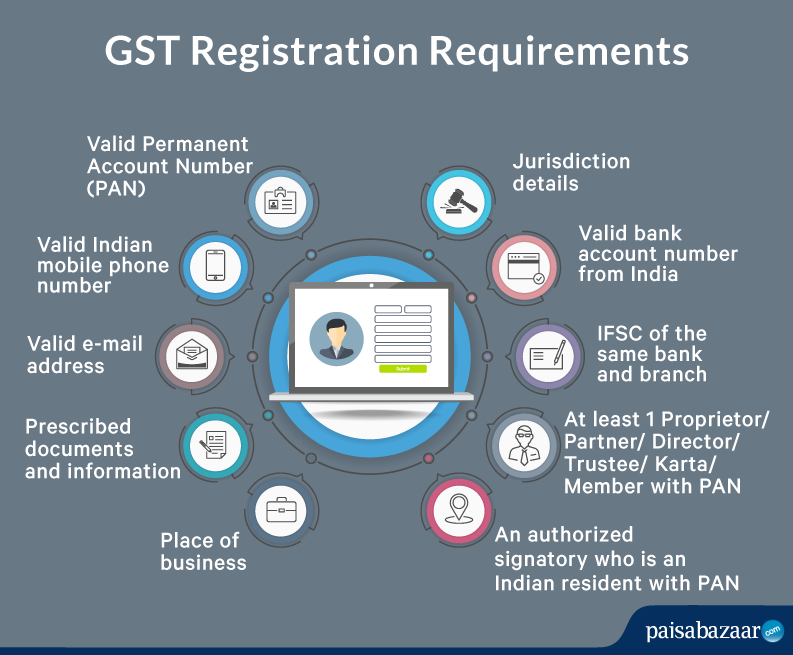Maximize Your Financial Savings with the very best GST Registration Services in Singapore
Maximize Your Financial Savings with the very best GST Registration Services in Singapore
Blog Article
From Beginning To End: The Ultimate Roadmap to GST Enrollment for Organizations Looking For Financial Security
Navigating the complexities of Item and Services Tax (GST) enrollment is a critical step for businesses making every effort for financial security. Breaking down the roadmap right into workable actions can streamline the enrollment journey for companies looking to boost their financial standing.
Comprehending GST Basics
Delving into the fundamental concepts of Item and Solutions Tax Obligation (GST) is vital for obtaining a comprehensive understanding of its ramifications on services and the economy. Input Tax Obligation Credit Score (ITC) is a substantial function of GST, enabling services to declare credit history for tax obligations paid on inputs, decreasing the general tax burden. Understanding the essentials of GST is critical for businesses to conform with tax guidelines, handle their funds successfully, and contribute to the nation's financial development by taking part in a clear tax system.
Qualification Standards for Enrollment
To register for GST, services need to fulfill specific eligibility criteria developed by the federal government. The primary qualification requirement is that any kind of business associated with the supply of items or services with a yearly aggregate turn over over the threshold limit established by the authorities have to register for GST. As of the current laws, the threshold limit for GST enrollment is a yearly aggregate turn over of 40 lakhs for services operating within a state, other than for unique classification states where the restriction is 20 lakhs. In addition, particular services are called for to sign up for GST regardless of their turn over, such as interstate distributors, casual taxable persons, and companies responsible to pay tax obligation under the reverse cost device. It is vital for organizations to completely evaluate their turn over and transaction kinds to establish their GST enrollment obligations properly. Failure to register for GST when eligible can cause fines and legal repercussions, making it important for services to stick to the defined qualification standards.
Papers Required for Enrollment
Having actually met the qualification standards for GST registration, companies have to now guarantee they have the requisite files in location to wage the enrollment process successfully. The records needed for GST registration normally consist of proof of business constitution, such as collaboration action, enrollment certification, or unification certification for various sorts of services. In addition, businesses need to give papers developing the major workplace, such as a rental contract or electrical power expense. PAN card of business, along with the identification and address evidence of promoters/partners/directors, are important for verification functions. Financial institution account declarations, along with canceled cheques or a duplicate of the financial institution passbook, are called for to validate the monetary information given during enrollment. Furthermore, businesses have to have electronic trademarks prepared for the accredited signature. Making certain all these records are organized and readily available will expedite the GST registration procedure, visit our website making it possible for companies to adhere to tax obligation laws seamlessly.
Step-by-Step Enrollment Process
Starting the GST registration process entails a series of organized actions to ensure a seamless and compliant enrollment for businesses. The primary step is to visit the GST website and load out the enrollment kind with precise information of the service entity. Following this, the candidate receives a Short-lived Recommendation Number (TRN) which is used to return to the application process if it's not finished in one go.
Next, all required papers according to the list supplied by the GST portal demand to be uploaded. These records commonly consist of proof of organization enrollment, address and identity evidence of promoters, monetary declarations, and company entity's PAN card.

Post-Registration Compliance Guidelines

Conclusion
In final thought, businesses seeking monetary security needs to understand the essentials of GST, meet eligibility requirements, gather essential documents, adhere to the detailed enrollment procedure, and adhere to post-registration guidelines - Best GST registration services in Singapore. By adhering to these steps, companies can make sure conformity with tax guidelines and keep monetary stability in the lengthy run
In addition, particular services are called for to register for GST irrespective of their turnover, such as interstate vendors, casual taxable persons, and organizations liable to pay tax under the reverse charge mechanism.Having met the eligibility standards for GST registration, businesses need to currently ensure they have the requisite files in area to continue with the enrollment procedure effectively. The documents needed for GST enrollment normally consist of evidence of organization constitution, such as partnership deed, enrollment certification, or incorporation certificate for various kinds of organizations. Additionally, services require to give documents developing the primary place of company, such as a rental contract or electricity expense.Commencing the GST registration process includes a collection of structured steps to ensure a compliant and seamless enrollment for services.
Report this page